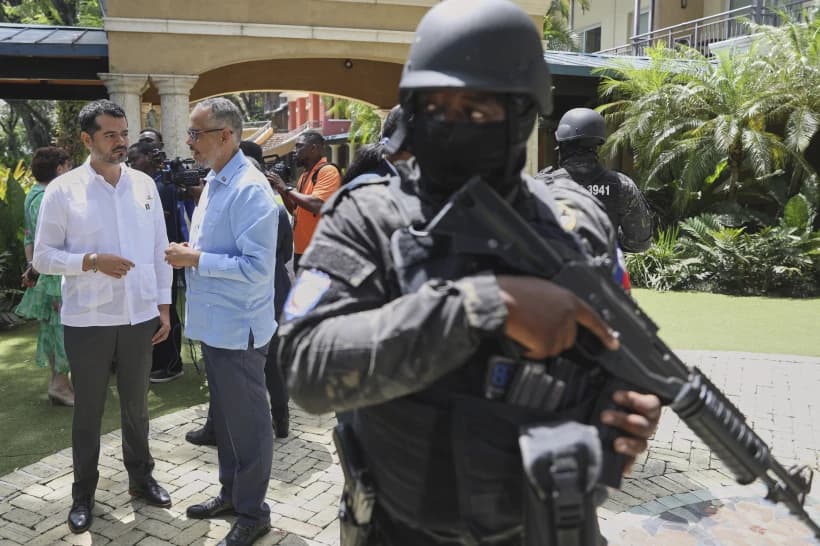SÃO PAULO, Brazil – More than 3,000 people were killed in Haiti during the first six months of this year, according to the Office of the United Nations High Commissioner for Human Rights.
The high number of deaths caused by the widespread violence that has overtaken the Caribbean nation has been impacting the Church’s work in several ways.
In a press conference promoted by the OHCHR in Geneva last week, spokesperson Ravina Shamdasani informed that 3,141 people were murdered in Haiti between Jan. 1 and Jun. 30 in 2025. Departments like Artibonite and Centre are among the most impacted ones.
Since the murder of President Jovenel Moïse in 2021, gangs have been taking control of large areas of Haiti’s capital city Port-au-Prince. According to the OHCHR, those criminal groups have been expanding their presence along major routes in the northern and central parts of the country, reaching the border with the Dominican Republic.
Kidnappings and extortion have become widespread practices. Church people are especially targeted by criminals, who know that dioceses and congregations have some money and will pay for ramsons or for the safety of their members.
With so many fatal victims of violence, it’s obvious that Church members were also directly hit by criminals. The most recent case was the murder of two nuns of the congregation of the Little Sisters of St. Therese of the Child Jesus. The nuns were killed on Mar. 31 in the town of Mirebalais, located about 37 miles away from the capital.
“They were ambushed in their parish house, side by side with laypeople and the security guard. All of them were killed,” Sister Hélia Sange Moreira, a Brazilian-born member of the Apostles of the Sacred Heart of Jesus, told Crux.
Moreira said the criminals didn’t allow the community to prepare their funeral.
“Their bodies were just left away to decompose. That’s very sad,” she said.
Moreira and her colleagues take care of a school located in the neighborhood of Santo, which has been one of the least affected by violence until now.
“Many people from endangered locations come to our neighborhood in order to protect their lives. The gangs have been less violent to us,” she added.
Increasingly, however, criminals showing their guns have been circulating in the district.
“If you have a large car, they stop you in the city and try to get some money. When you go to the supermarket, you have to pay them a ‘tariff,’” Moreira said.
According to Father Gilbert Peltrop, secretary-general of the Conference of Religious of Haiti, more and more laypeople involved in parish activities or ecclesiastical movements have been killed or suffered other kinds of violence over the past months.
“The gang violence has a negative impact on the Church’s pastoral ministry. Churchgoers have been scattered over several places, living outside of their homes or their parishes. Assembling people has been increasingly difficult,” he told Crux.
According to Scalabrinian Father Agler Cherizier, many priests and nuns have left the capital to move to safer locations – or even left the country.
Moreira affirmed that a group of priests had to leave the district where they were operating after being threatened. The hospital run by them was left behind – but the criminals allowed them to go back to the clinic afterwards.
“Their houses, however, had been pillaged and burnt down,” Moreira said. Large religious houses are often occupied by the gangs, she added.
Since 2024, a few hundred Kenyan policemen – about 800 now – have been deployed in Haiti as part of the UN-led peace keeping force. The force has not been successful, however, in combating the large criminal gangs that took over Port-au-Prince.
“The Church keeps its work in a timid, slow rhythm. Most people are afraid of being too visible. Missionaries are equally struggling for their lives,” Moreira said.
She said that the main goal of the Catholics right now is to give some hope to the Haitian people amid a desperate situation.
“If we analyze the scenario in detail, we’ll conclude that there are no concrete reasons for hope. But we cannot let despair win,” she said. “The Haitians in general are a people of faith. Curiously, it’s their faith that helps us to recover hope.”











